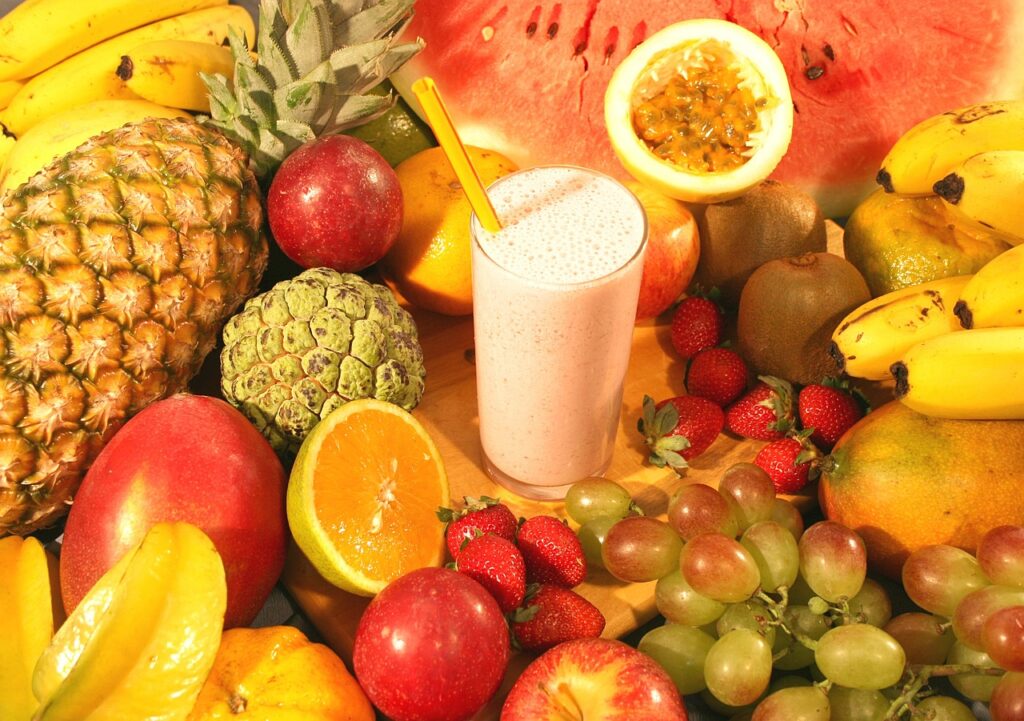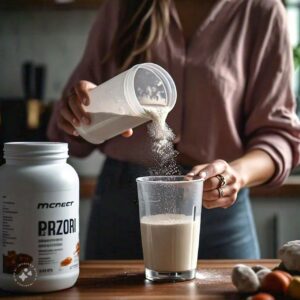Overview
Maintaining a healthy lifestyle in our fast-paced environment is more important than ever. Energetic nutrients are at the heart of this effort, with vitamin supplements being particularly important. Vitamin supplements are organic substances that are essential for many physiological processes, enhancing general health, and preventing many diseases.
II. Vitamin Types
Vitamins are broadly categorized into two groups: water-soluble and fat-soluble.
A. Water-Soluble Vitamins
- Vitamin C (Ascorbic Acid)
- B-Complex Vitamins (B1, B2, B3, B5, B6, B7, B9, B12)
B. Fat-Soluble Vitamins
- Vitamin A (Retinol)
- Vitamin D (Calciferol)Vitamin E (Tocopherol)
- Vitamin K (Phylloquinone)
III. Vitamin-Rich Foods
A balanced diet makes it simple to ensure a sufficient intake of vitamin supplements. The following lists foods high in vitamins for each type:
Vitamin A-Rich Food
. Broccoli
. Citrus fruits (oranges, lemons, grapefruits)
B-Complex Vitamin Sources
. Whole grains
. Eggs
. Nuts and seeds
. Leafy greens (spinach, kale)
Vitamin C-Rich Foods
- Carrots
- Sweet
- potatoes
- Spinach
- Mangoes
Vitamin D Sources
- Fatty fish (salmon, mackerel)
- Fortified dairy products
- Sunlight exposure
Vitamin E-Rich Foods
- Nuts and seeds
- Spinach
- Avocado
- Olive oil
Vitamin K Sources
- Brussels sprouts
- Broccoli
- Soybeans Leafy greens (kale, collard greens)
IV. Vitamin Sources
Understanding where our vitamin supplements come from is necessary for making informed nutritional choices. Sources can be natural or synthetic, and both play a role in meeting our nutritional needs.
A. Natural Sources
-
- Fruits and vegetables
-
- Dairy products
-
- Meat and fish
B. Synthetic Source
-
- Fortified foods
-
- Dietary supplements

V. Vitamin Supplements Benefits
Every vitamin has a different set of health advantages and supports different body processes. Being aware of these benefits can encourage people to choose a different and nourishing diet.
-
- Immune System Support (Vitamin C)
-
- Energy Production (B-Complex Vitamins)
-
- Vision Health (Vitamin A)
-
- Bone Health (Vitamin D)
-
- Antioxidant Properties (Vitamin E)
-
- Blood Clotting (Vitamin K)
VI. Vitamin Deficiency Symptoms
Identifying the signs of vitamin deficiency is important for maintaining the best health. Symptoms vary depending on the deficient vitamin.
-
- Vitamin C Deficiency (Scurvy)
-
- B-Complex Vitamin Deficiency (Beriberi, Pellagra)
-
- Vitamin A Deficiency (Night Blindness)
-
- Vitamin D Deficiency (Rickets)
-
- Vitamin E Deficiency (Neuropathy)
-
- Vitamin K Deficiency (Excessive Bleeding)
VII. Vitamin Functions
Exploring deeper into the biological aspects, and understanding how each vitamin supplements functions in the body provides valuable awareness into their significance.
-
- Vitamin C’s Role in Collagen Synthesis
-
- B-Complex Vitamins and Metabolism
-
- Vitamin A and Vision
-
- Vitamin D’s Impact on Calcium Absorption
-
- Vitamin E’s Antioxidant Defense
VIII. Vitamin Supplements
While a balanced diet is the primary source of vitamins, supplements can be beneficial for individuals with specific needs or limitations.
-
- Considerations Before Taking vitamin Supplements
-
- Recommended Daily Allowances (RDAs)
-
- Common Vitamin Supplements
-
- Multivitamins
-
- Vitamin D Supplements
-
- Vitamin C Supplements
IX. Vitamin Shoppe
It might be overpowering to navigate the world of vitamin supplements, but decent stores like Vitamin Shoppe provide a large selection of goods. Take these things into account while selecting a supplement supplier.
-
- Customer Reviews and Ratings
-
- Expert Advice and Assistance
-
- Product Quality and Testing
X. Vitamin Summary
In conclusion, vitamin supplements are essential for sustaining life and promoting health. From understanding their types and sources to gaining their many benefits, incorporating a wide range of vitamin-rich foods into your diet is key. Remember, while vitamin supplements can bridge nutritional gaps, they should complement—not replace—a balanced and wholesome diet. Embrace the power of vitamin supplements for a healthier, more energetic life.
DAILY INTAKE OF VITAMIN SUPPLEMENTS:
Here’s a general guide to daily vitamin intake for adults. Keep in mind that individual needs may vary, and it’s always best to consult with a healthcare professional for personalized advice. The values are given in micrograms (mcg) or milligrams (mg) for most vitamins, and in international units (IU) for vitamin D.
| Vitamin | Recommended Daily Intake (RDI) | Sources |
|---|---|---|
| Vitamin A | 700 mcg (women), 900 mcg (men) | Sweet potatoes, carrots, spinach, kale |
| Vitamin B1 (Thiamine) | 1.1 mg (women), 1.2 mg (men) | Pork, whole grains, nuts, seeds |
| Vitamin B2 (Riboflavin) | 1.1 mg (women), 1.3 mg (men) | Dairy products, lean meats, green leafy vegetables |
| Vitamin B3 (Niacin) | 14 mg (women), 16 mg (men) | Meat, fish, poultry, whole grains |
| Vitamin B5 (Pantothenic Acid) | N/A (usually obtained from diet) | Meat, whole grains, vegetables |
| Vitamin B6 | 1.3 mg (women and men 19-50 years), 1.5 mg (men 51+, women 51+) | Chickpeas, beef, poultry, potatoes |
| Vitamin B7 (Biotin) | 30 mcg (adequate intake) | Eggs, nuts, whole grains |
| Vitamin B9 (Folate) | 400 mcg (women), 600 mcg (pregnant women), 400 mcg (men) | Leafy green vegetables, legumes, citrus fruits |
| Vitamin B12 | 2.4 mcg | Meat, fish, dairy products |
| Vitamin C | 75 mg (women), 90 mg (men) | Citrus fruits, strawberries, bell peppers |
| Vitamin D | 600 IU (15 mcg) | Fatty fish, fortified dairy products, sunlight |
| Vitamin E | 15 mg (22.4 IU) | Nuts, seeds, spinach, broccoli |
| Vitamin K | 90 mcg (women), 120 mcg (men) | Leafy green vegetables, broccoli, soybeans |
Please note that these values are general recommendations, and specific needs may vary based on factors such as age, gender, health conditions, and lifestyle. Always consult with a healthcare professional for personalized advice.




2 thoughts on “Top 10 vitamin supplements and food sources for health boost”